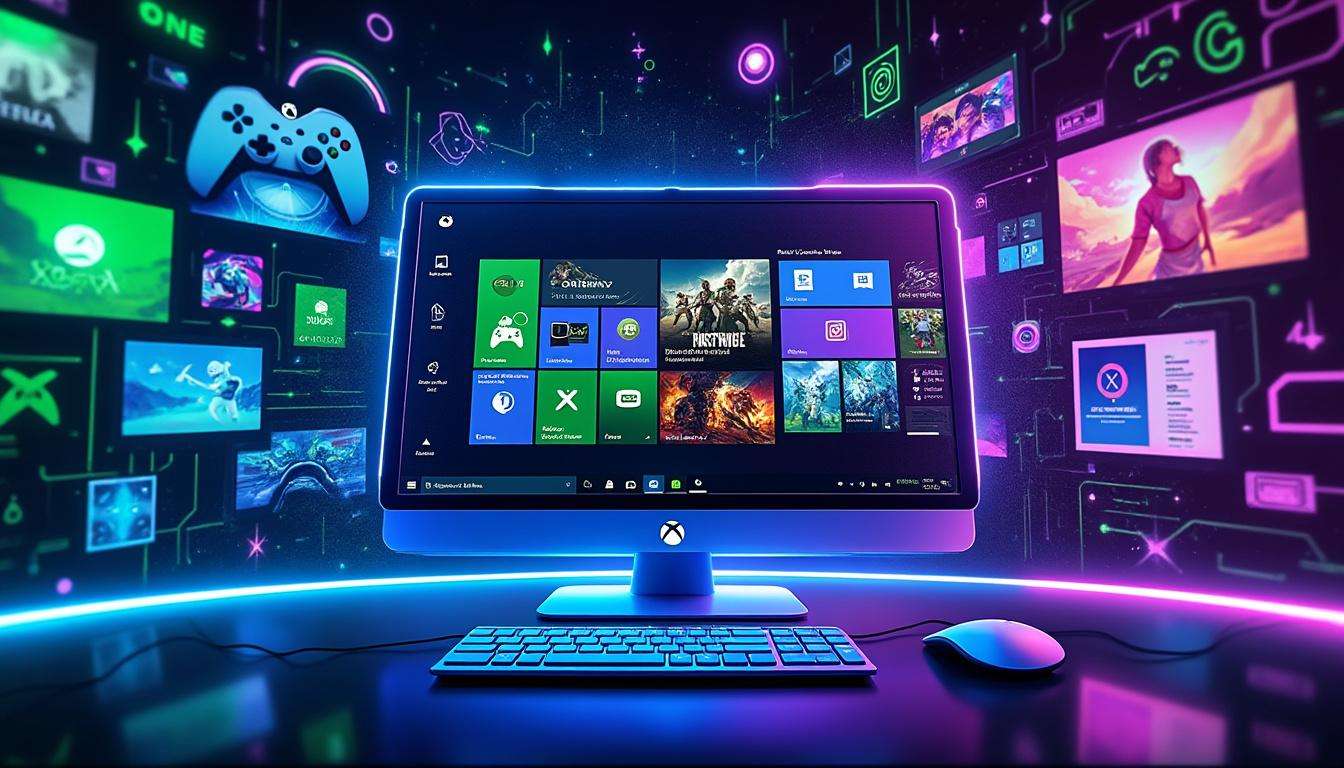Microsoft is pushing PC gaming closer to the Xbox experience by integrating PC gaming apps and storefronts into the Windows Xbox app. The initiative centers on a new aggregated gaming library and a dedicated My Apps tab, which collectively aim to streamline how players access titles from multiple stores on a single surface. In practice, this means Windows users could launch games from Steam, Epic Games Store, Origin, GOG, Battle.net, Ubisoft Connect, and more—without bouncing between launchers. The move complements Microsoft’s evolving strategy of unifying PC and console gaming, and it’s being tested with a handheld-friendly mindset that could benefit devices like the Xbox Ally. As 2025 unfolds, this integration promises to reduce friction and redefine how players discover and manage their libraries across storefronts and devices.
- Unified library: access games from Steam, Epic Games Store, Origin, GOG, Battle.net, Ubisoft Connect, and more in one place.
- My Apps tab: a dedicated hub to locate, view, and launch third-party apps and storefronts from within the Xbox app.
- Handheld and PC synergy: optimized for Windows handhelds like Xbox Ally, removing the need to constantly toggle between Windows desktop and storefront apps.
- Cross-store convenience: a streamlined workflow that mirrors the ongoing Microsoft Gaming Revolution toward a unified Windows gaming experience.
- Developer and storefront momentum: the approach signals closer collaboration between major ecosystems, including Discord, Bethesda, and Ubisoft.
Microsoft Integrates PC Gaming Apps and Stores Into Windows Xbox App: A Unified Library for 2025
The Xbox app for Windows is expanding beyond its own catalog by testing a new “My Apps” tab that consolidates third-party games and utilities. In this beta, players can see and launch apps from Battle.net and Chrome directly from the Xbox UI, with anticipation that more stores like GOG Galaxy and Ubisoft Connect will join the fold. The goal is a seamless PC gaming experience where the Xbox app becomes the central launcher for multiple storefronts, echoing Microsoft’s broader strategy to merge Windows and Xbox ecosystems. This aligns with broader industry conversations about what a truly unified PC gaming hub should feel like, and echoes public discussions around the future of Xbox on PC and handheld devices. For readers following industry shifts, this development is a natural extension of the ongoing cross-store ambitions described in coverage on Microsoft Gaming Revolution and Xbox on PC rebrand efforts.
- Aggregated libraries: the initial beta aggregates titles across Steam, Battle.net, Ubisoft Connect, and other PC ecosystems within the Xbox app, offering a single entry point for many games.
- My Apps beta: a tab that lists third-party applications and the most-used storefronts, enabling quick installs and launches without leaving the Xbox interface.
- Handheld compatibility: designed with handheld Windows devices in mind, facilitating smooth navigation from full-screen Xbox experiences on the go.
- Cross-store discovery: players can find and boot games from multiple storefronts without launching separate clients.
- Industry context: the move reflects a broader push to fuse Windows gaming with Xbox services, a trend explored in broader analyses of the Xbox ecosystem and PC gaming evolution.
- Microsoft Gaming Revolution — a contextual read on this renaissance in cross-platform strategy.
- Xbox on PC Rebrand — how Windows shifts are shaping the Xbox experience.
- Handheld Xbox Gaming Review — notes on handheld integration and performance trends.
Between this video and the next, the practicalities of “My Apps” and cross-store access are explored in more depth, including potential friction points and platform limitations.
Why This Shift Matters for Players, Developers, and Stores
- Players gain a more convenient path to their entire catalog, reducing launcher clutter and time-to-boot.
- Developers and publishers may see increased visibility across multiple storefronts, potentially shifting marketing and launch strategies.
- Storefronts could benefit from a unified discovery layer, though competition and revenue-sharing models will influence adoption rates.
- Handheld PC gaming gains more traction as a seamless Windows/Xbox experience expands beyond traditional desktops.
- Expect ongoing updates through 2025 as more stores (including regional or indie launchers) are invited to participate.
- For a broader view of where this is headed in the market, see Compact Gaming PC vs Console and related industry analyses.
As highlighted by industry discussions on handheld and PC integration, the path forward may include deeper collaborations with platforms like Steam, Epic Games Store, and GOG Galaxy, reinforcing a future where Windows gaming feels like a single, coherent ecosystem. For readers following the broader implications, reviews and analyses discuss how this strategy fits within evolving market dynamics and consumer expectations.
- How will monetization evolve when the Xbox app aggregates storefronts?
- Which stores will be next to join the My Apps hub?
- What are the performance considerations on handheld Windows devices?
- Will Discord and Bethesda play a larger role in cross-store social features?
FAQ
- What is My Apps in the Xbox PC app? A beta feature that consolidates third-party applications and stores, allowing quick access and launches from a single interface.
- Which storefronts are included? Initial integrations include Steam, Battle.net, Ubisoft Connect, GOG Galaxy, and Chrome, with plans to expand to others over time.
- How does this affect handheld gaming? The integration targets handheld Windows devices like the Xbox Ally, reducing reliance on the Windows desktop workflow and enabling easier on-the-go access to games and apps.
- Will this change the PC gaming market? It signals a shift toward a more unified PC gaming experience, potentially altering how developers approach cross-store launches and how players discover titles.
- See Xbox on PC rebrand context for background on how Windows and Xbox services are converging.

